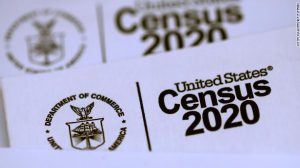Did the Census Bureau “allow” multiracial people anything?

A new scholarly paper has come out, published by Sage Publications. It’s called “How Policies Can Address Multiracial Stigma” and begins with this: On the second anniversary of the first U.S. Census that allowed Americans to indicate more than one race, public policies and interventions should consider addressing Multiracial-specific forms of stigma.
Some of the writers of this paper have written before that the U.S. Census Bureau “allowed” multiracial people to choose more than one race in 1997. One of the writers, Sarah E. Gaither of Duke University certainly knows better.
Let us set the record straight once and for all: The Census Bureau “allowed” us nothing. The multiracial advocates dragged them into the fray and made them adhere to the findings of the Office of Management and Budget (OMB), which was heavily influenced by Project RACE and other organizations and individuals. We fought long and hard. People like Gaither, were not there, had nothing to do with it and no one “allowed” us anything. Why do the “scholars” like to pretend otherwise? We have no idea, but you can read the paper yourselves here:
This is the conclusion of this paper:
Conclusion
Arguably, a new era of racial conceptions might seem a result of the growing Multiracial population, but the data are mixed. On the contrary, after experimental exposure to Multiracial populations, participants later conceptualize race as less fixed and less based on biology (Gaither et al., 2018; Sanchez et al., 2015; Wilton et al., 2014; Young et al., 2013). These less essentializing views of race over time, increase egalitarian racial attitudes, foster cognitive flexibility among monoracial populations (Pauker, Carpinella, et al., 2018), and benefit Multiracial health (Sanchez & Garcia, 2009). On the contrary, Multiracial people report identity denial (Albuja et al., 2019b), exposure to stereotypes and marginalization (e.g., Skinner et al., 2019), and experience perceivers applying hypodescent or one-drop rules in their categorization (Chen, 2019). Thus, on the second anniversary of the first U.S. Census to allow check-all-that-apply race options, it is opportune to consider how future policies and reporting practices can better address Multiracial stigma.
When you figure out what they are trying to say, please let us know.
